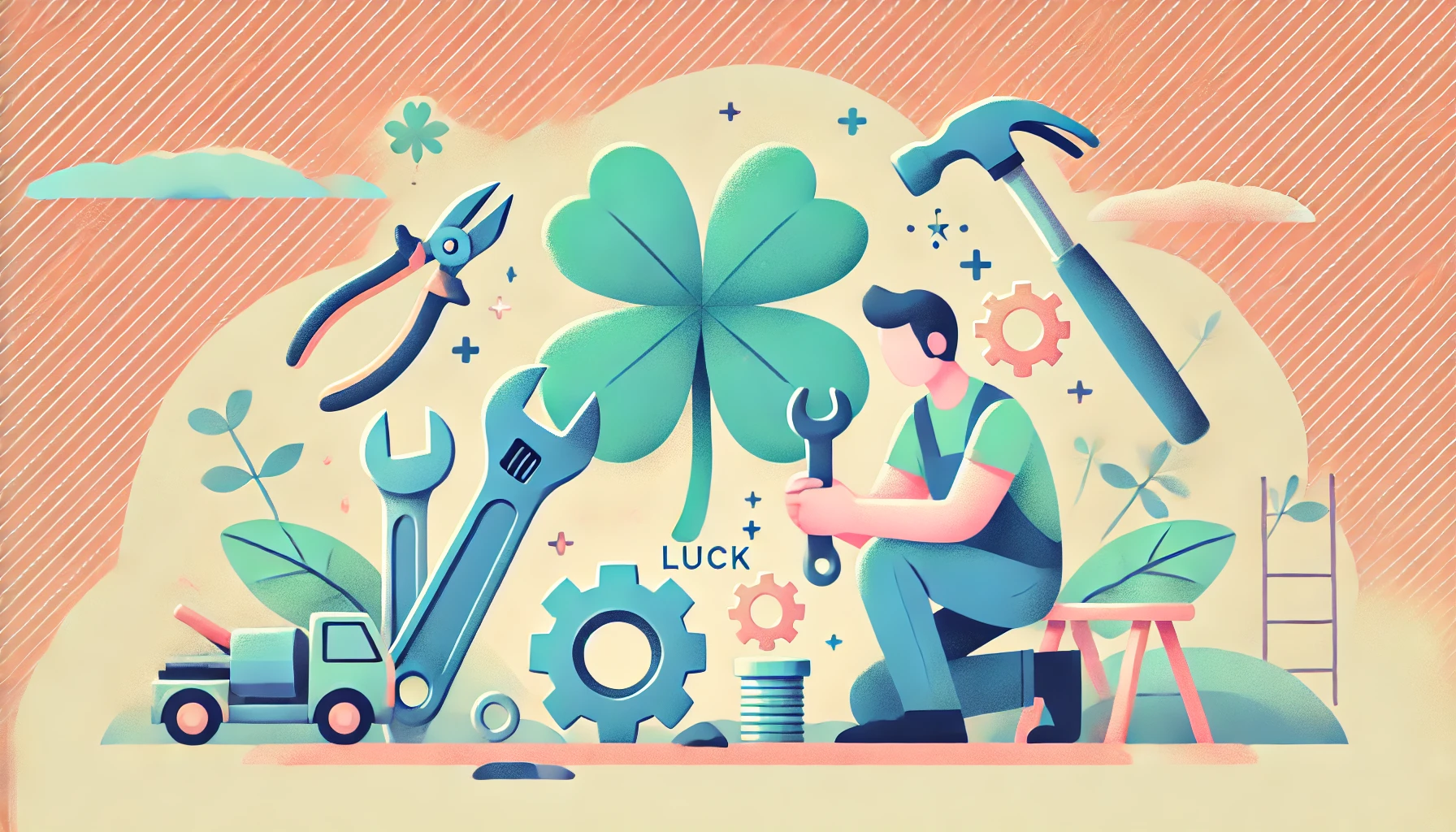In the journey of life, balancing luck and hard work is paramount to achieving true inner peace and resilience. Embracing the teachings of Param Gurudev, we delve into the profound insights that guide us toward mental strength and spiritual growth. These teachings provide a framework for navigating life’s challenges, fostering a mindset that embraces both effort and fortune.
The Essence of Balancing Luck and Effort

Inner peace is not merely the absence of conflict but the presence of a harmonious balance between our efforts and the circumstances that shape our lives. Param Gurudev emphasises that while luck plays a role, our actions and the quality of our efforts significantly impact our journey. This balance is akin to nurturing a delicate plant – it requires the right amount of sunlight (luck) and diligent care (effort) to thrive.
Our lives are a tapestry woven with threads of effort and strands of fortune. By understanding that luck is a factor beyond our control, yet acknowledging the power of our actions, we cultivate a sense of peace. This acceptance allows us to focus on what we can influence—our actions and responses to life’s circumstances.
Acts of Compassion: Feeding Animals and Karma

Feeding animals and caring for them is a simple yet profound act that positively influences our karma. By extending our compassion to all living beings, we cultivate a mindset of empathy and kindness. This act serves as a reminder of the interconnectedness of life and how our actions ripple through the fabric of existence.
Acts of kindness towards animals are not only beneficial for the recipients but also for the giver. They foster a sense of responsibility and nurture a compassionate heart. This practice, as taught by Param Gurudev, highlights the significance of selfless acts and their impact on our spiritual growth.
Embracing Challenges with a Smile

Facing problems with a smile is another cornerstone of Param Gurudev’s teachings. Challenges are not obstacles but opportunities to correct our karma and grow spiritually. Each problem we encounter is a stepping stone towards greater resilience. By embracing these challenges with a positive attitude, we transform adversity into a catalyst for inner growth.
Viewing problems as opportunities rather than setbacks changes our perspective. It empowers us to tackle difficulties with a positive mindset, turning potential obstacles into lessons. This approach not only strengthens our mental resilience but also aligns us with a higher purpose.
Maintaining Positivity in Adversity

Maintaining positivity in adversity is not just a spiritual practice but a practical approach to life. When we focus on the quality of our actions rather than the quantity, we achieve a state of contentment and peace. This quality-driven approach ensures that our efforts are meaningful and impactful, creating a foundation of lasting happiness.
Positivity is a powerful tool in navigating life’s challenges. It transforms our outlook, enabling us to see beyond the immediate difficulties and recognize the potential for growth. By maintaining a positive attitude, we create an environment where resilience can flourish.
The Power of Good Deeds
Good deeds play a pivotal role in shaping our destiny. Every act of kindness and compassion contributes to our well-being and the well-being of those around us. These actions, rooted in selflessness, pave the way for positive outcomes in our lives. The balance of luck and effort is evident here – while luck may provide opportunities, it is our good deeds that enable us to seize these opportunities and make the most of them.
The impact of our actions extends far beyond the immediate results. Each good deed sets off a chain reaction, influencing not only our lives but also the lives of others. This interconnectedness is a central theme in Param Gurudev’s teachings, emphasising that our actions are instrumental in shaping our destiny.
Balancing Soft and Hard Actions

Balancing soft and hard actions is essential in our interactions. Soft actions, characterised by empathy and understanding, complement hard actions, which require firmness and decisiveness. This balance ensures that our actions are both kind and effective, fostering harmonious relationships and creating a positive impact.
In every interaction, the balance between softness and firmness is crucial. Soft actions create a foundation of trust and compassion, while hard actions provide clarity and direction. This balance is essential for effective communication and relationship building.
The Interplay of Luck and Effort

The interplay of luck and effort is a recurring theme in Param Gurudev’s teachings. Good luck can be cultivated through positive actions, creating a cycle of positivity and growth. By understanding this interplay, we can navigate life’s challenges with greater clarity and purpose, knowing that our efforts are guided by a higher force.
Luck is often seen as a random occurrence, but Param Gurudev teaches that it can be influenced by our actions. Positive actions create positive energy, which in turn attracts good fortune. This understanding empowers us to take control of our destiny through our efforts.
Practical Stories and Examples
Stories and examples from everyday life illustrate the practical application of these principles. These narratives serve as a testament to the transformative power of balancing luck and effort. They inspire us to reflect on our own lives and make conscious choices that align with our spiritual goals.
Hearing real-life examples helps ground abstract concepts in reality. These stories provide relatable contexts for applying Param Gurudev’s teachings, making the lessons more accessible and impactful.
The Role of Mindfulness and Meditation
Incorporating mindfulness and meditation into our daily routine enhances our ability to balance luck and effort. These practices help us remain grounded, focused, and resilient. By dedicating time to self-reflection and inner peace, we can better navigate the complexities of life and maintain a harmonious balance.
Mindfulness and meditation are powerful tools for cultivating inner peace. They allow us to pause, reflect, and align our actions with our spiritual goals. Through regular practice, we develop a deeper understanding of ourselves and our place in the world.
Cultivating Gratitude and Humility
Gratitude and humility are essential components of a balanced life. Recognizing the role of luck in our successes and being thankful for the opportunities we receive fosters a positive outlook. Humility allows us to remain grounded and open to learning, ensuring that we continue to grow and evolve.
Gratitude shifts our focus from what we lack to what we have, fostering a sense of contentment. Humility, on the other hand, keeps us grounded, reminding us that we are part of a larger whole. Together, these qualities help us navigate life with grace and wisdom.
Building Resilient Relationships
Strong, resilient relationships are built on the principles of balance and understanding. By applying Param Gurudev’s teachings in our interactions, we can create supportive and nurturing relationships. These relationships provide us with the strength and encouragement needed to face life’s challenges.
Relationships are a cornerstone of our lives. By fostering connections based on mutual respect and understanding, we create a support system that helps us navigate life’s ups and downs. These resilient relationships are a source of strength and inspiration.
Conclusion
In conclusion, the path to inner peace and resilience is a journey of balancing luck and effort. Param Gurudev’s teachings provide us with the wisdom and guidance needed to navigate this journey. By focusing on the quality of our actions, maintaining a positive attitude, and embracing compassion, we can cultivate a life of true happiness and spiritual fulfilment. Balancing luck and effort, we can achieve a harmonious life, rich with purpose and joy.





